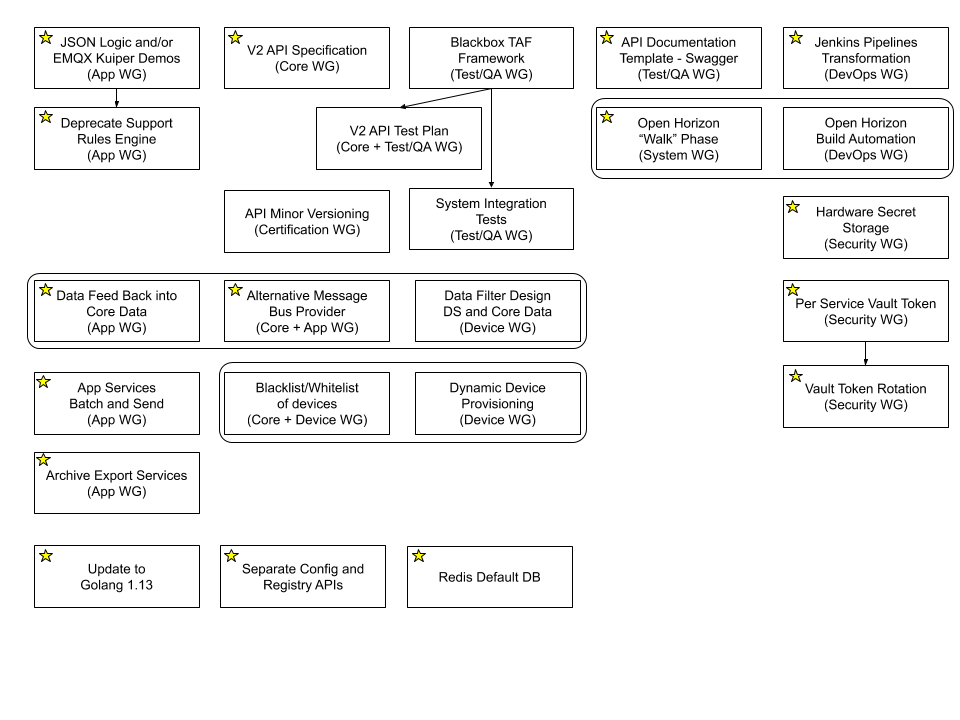| View file | ||||
|---|---|---|---|---|
|
The Geneva Release is the 6th successful community release of EdgeX Foundry. It is a minor (dot) release (version 1.2) and therefore backward compatible with the Edinburgh (v1.0) and Fuji (1.1) releases. Although a minor release, a number of new and significant features and improvements are unveiled with the release to include automatic device provisioning, a new rules engine implementation, and batch and forward functionality to name a few.
...
- Sensor readings are captured event/reading objects by device services. The event/reading objects are used throughout EdgeX to transport the sensor data. An event can have multiple readings associated. For example, in a single sensing, a thermostat may create an event with two readings: one for temperature and one for humidity. There are currently no restrictions on the number of readings on an event. In theory, an event can be packed with so many readings that it creates a object that is MBs in size or even larger. This can cause the system, particularly core data, start to slow down or even fail. In a future release, appropriate governors will be put in place to prevent event/reading objects from getting too big. For now, users are advised to monitor the size of their event/reading objects and break them apart if there are too many or too big of readings associated to an event. Ref #2527.
- Removing a scheduler interval by ID when an interval action is still using it crashes the scheduler. Ref #2520. The underlying problem is that the REST call to delete the scheduler interval by ID does not perform a check to ascertain that the interval is currently in use. As a work around, users are advised to follow the following procedure:
- At the outset of interacting with the support-scheduler service, first use the REST API to get the entire interval information. For example, let's say that the ID happens to have the value 71e5c882-61b8-4d98-a3b7-2aa68d60c5e6, then issue this cURL command (using the ID value get the full interval information: curl --location --request GET 'http://localhost:48085/api/v1/interval/71e5c882-61b8-4d98-a3b7-2aa68d60c5e6'
- From the response received, make a note of the interval's name and use the support-scheduler API to delete the scheduler interval by name (versus ID). If the name of the scheduler interval was midnight, the call would look like the following cURL command: curl --location --request DELETE 'http://localhost:48085/api/v1/interval/name/midnight
Geneva Release Overview
Release Dates and Timeline
...
